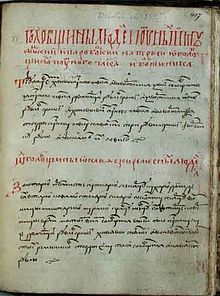History

The origins of Lithuanian law trace back to the first written source, the Casimir Code (Lithuanian : Kazimiero teisynas), published in 1468 by the Grand Duke of Lithuania Casimir Jagiellon with the Lithuanian Council of Lords. It is considered to be the first codified law of the Grand Duchy of Lithuania. Statutes of Lithuania, published three times (in 1529, 1566 and 1588) were the most influent legal codes of Lithuania. The third variant of the Statute was in force in the territory of Lithuania until 1840 when it got replaced by the Russian laws. However, under the rule of the Russian Empire, there were three separate civil law systems in force in Lithuania: in Suvalkija the Napoleonic Code was still applied, whereas the German law was in force in Klaipėda Region.
The legal system of independent Lithuania between the World Wars was influenced by the fact that three separate systems of civil law governed various parts of the country, while the autonomous Klaipėda Region had its own legal instruments. The notable difference from the rest of the state was the possibility of a secular civil marriage in the 1930s and 1940s. The drafting of Lithuanian legal codes went on for decades and was not completed until World War II. During the Soviet occupation, the adapted variation of the Soviet law was in force in Lithuania.
After regaining of independence in 1990, the largely modified Soviet legal codes were in force for about a decade. The modern Constitution of Lithuania was adopted on 25 October 1992. In 2001 the Civil Code of Lithuania was passed in Seimas. It was succeeded by the Criminal Code and Criminal Procedure Code in 2003. The approach to the criminal law is inquisitorial, as opposed to adversarial; it is generally characterised by an insistence on formality and rationalisation, as opposed to practicality and informality[ clarification needed ].
